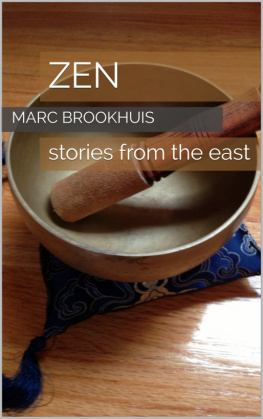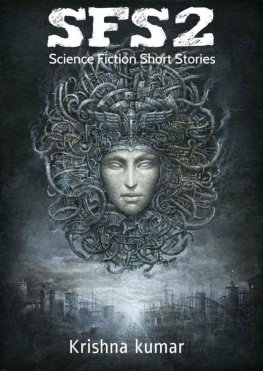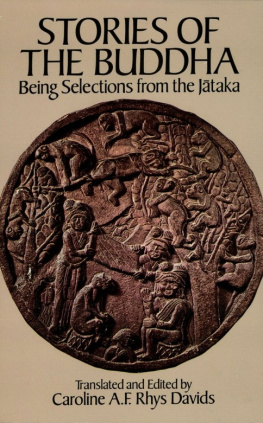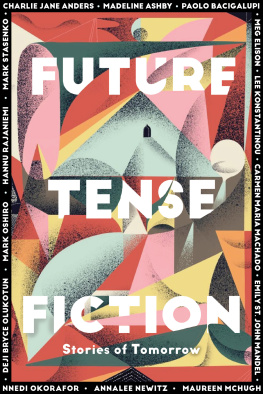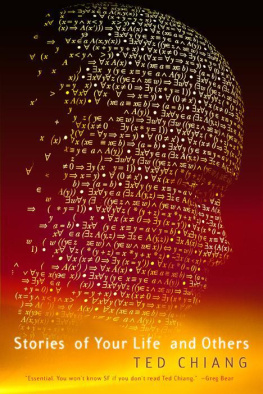ZEN
s tories from theEast
Marc Brookhuis
Copyright 201 3 MarcBrookhuis
Smashwords Edition
Smashwords Edition, License Notes
This ebook is licensed for your personalenjoyment only. This ebook may not be re-sold or given away toother people. If you would like to share this book with anotherperson, please purchase an additional copy for each recipient. Ifyoure reading this book and did not purchase it, or it was notpurchased for your use only, then please return toSmashwords.comand purchase your own copy. Thank you for respecting the hard workof this author.
Contents
Preface
Can all thestories that you have told us this week be found in a book? acourse member asked me after a zen session. Most probably, Ianswered, There are so many books about zen. But at the same timeI could not think of one, at least not the kind that I had in mind:A book with a collection of zen stories that I have often told andheard about including the necessary examples andexplanations.
The idea towrite my own book was born. However, there was some doubt. Should I be the one to pass on thesestories? The stories are not my own, can I just simply pass themon? And is my interpretation correct?
My Zenteacher reminded me of an important promise you make during theDukai ceremony, an initiation into zen. Be forthcoming and notreticent with the Dharma. Share your insights and be forthcomingwith all that can help in life.
Then I wasleft with the question whether myinterpretation was the correct one. To which there is only onepossible answer. It is but one explanation, one interpretation. Ihave done my best based on my zen experience, however, it is onlymy point of view. As always, there are many possibleinterpretations.
Introduction
There aremany stories and anecdotes in ZenBuddhism. Telling stories has its advantages. The audience is morelikely to remember the contents than when presented as drytheory.
Many storiesin this bo ok are educational, have amoral or provide an insight. Most of the stories derive from ZenBuddhism. Sometimes we will explore Taoism or use passages thatserve as an introduction to explaining Zen.
The stories are a mere selection; there are many more interesting stories to tell.However, the selected stories seemed to work besttogether.
Too vercome yourself
Mohamm ed and hissoldiers are on the eve of a great battle. A battle they willeventually win with great difficulty because of their commitment and passion. Whileoverlooking the battlefield an elated soldier says to Mohammed.This this must have been the great Jihad (battle / victory).No, says Mohammed, this was but a small Jihad. The great Jihadis to overcome yourself.
This is anIslamic story , which is rather an unusualstart to a book containing primarily zen stories. The reason forthis is because it effectively describes what religions andideologies are all about, namely, to overcome yourself.
What then doyou overcome? You could say that you overcome your self or ego, climbing over a wall where ego istrapped. Zen often talks about the little I and the big I. Thelittle I is the ego that stands in the middle without askingquestions. It is an ego that forms the centre of the world that isresponded to without being subjected to self-reflection. The big Ihas more room. You are less one with yourself, there is a certaindistance that has been created.
Theobjective of religions and ideologies isgrowth. Every ideology has an answer to the question what thisgrowth should look like. They try to help individuals find a pathwith more insight and wisdom.The answers may look different but if you learn more aboutreligions youll soon discover that there is more common groundthan expected.
A way to growis through self-knowledge .Know thyself, it said above the Oracle of Delphi, the placepeople went to in ancient times to find answers to importantquestions about life. But the best answers are your own. Wisdom andunderstanding derive from self-knowledge.
This too ispracticed within zen. Go in search,honest and open-minded. Know yourself!
To study the way of the Buddhais to study yourself.
To study yourself is to forget yourself.
To forget yourself is to be enlightened by allthings.
Agarden and a zenmaster
It is autumn and thesenior monk of a little temple in the north of Japan is busysweeping leaves together. With great zeal he sweeps all the leavesunder the great tree and as he is putting the leaves in bags, hesees a zen master from another temple looking at him from over thewall. The monk waves and calls, It is good isnt it, gesturing to the tidy garden.Hm... answers the zen master, Just about. Wait a moment I amcoming over. The zen master walks into the garden and up to thetree and gives it a good shake. The garden is covered in leavesagain. Now it is good, says the zen master.
This is atypical zen story. It is not very kindand a bit odd, many zen stories are like this. However, they arestories with a moral, although usually hidden.
Why did thezen master behave this way? Although it is uncertain it could havesomething to do with practicing altruism. Doing something and doingit well without gain. Maybe the monk valued the result of hisefforts too much and the zen master found it necessary to end thisway of thinking. It is also possible that the zen master just feltlike it, maybe he simply does not like tidy gardens. This is theway some zen answers are.
The mostappropriate explanation seems to be t hefirst. Is it possible to do something without the emphasis being onthe end result? Is it possible not to put too much emphasis on theend result and yet stay focused?
C hores such as cleaning, rakingleaves, sweeping, mopping floors and weeding are all part ofeveryday life in zen. It is all part of practice and training. Theexercises are also about the end result often being short lived, aswith a clean floor. It starts all over again the next day. It is anexercise in persistence. Instead of moving on all the time orwanting to evolve or climb the ladder. it is about startinganew.
The exerciseis about concentrating on the process. Is it possible to stayfocused, to do something well without caring about the endresult?
The nextstory has something to do with this too .
Doing your best; Pukand Muk and the wicker basket
Puk and Muk ( for thesake of a name) live in a monastery in China. I need some water,the master says and he points to a wicker basket. Go and get somewater with that wicker basket! Puk and Muk take the basket andwalk into the river but no matter how hard they try thewicker basket wont holdwater. After several attempts they give up and go back to themaster disappointedly. Ah, nice says the master looking at the basket. The basket wouldnever have been this clean if I had asked you to cleanit.
This too is a story about doing chores. In thisparticular case the master has linked it to a purpose, fetchingwater. A purpose apparently that motivated them to take their time.Puk and Muk would not have taken this amount of time if it wassimply cleaning the wicker basket.
Do the bestyou can. Parents say this to their children and it is whatteachers tell their pupils. Do the best you can It is easier saidthan done. We rush through things we are not interested in. It isespecially the mundane chores that we can not wait to get finishedwith first.
Why it is sodifficult to do these type o f choresproperly is obvious. The work itself is usually uninteresting andthe result therefore is notthat fantastic either. We are not applauded for our efforts and weusually get dirty and sweaty, ugh. We most probably look down onsuch chores and think ourselves too important to do this kind ofwork.
This is ourego at work. All those things we tell ourselves, theso -called mirrors that we use to look atourselves. This is how I want to be, this is what I need, and so on. There are manydifferent ways our ego can get in the way; The ego that says we aretoo important to do a type of job, or we do a chore for the sake ofthe pat on the back and to say, look how well I have done thatjob!

